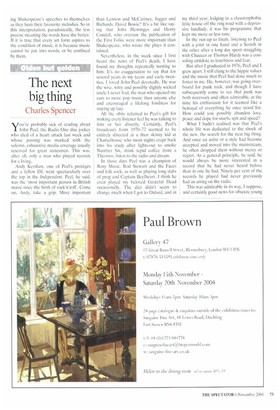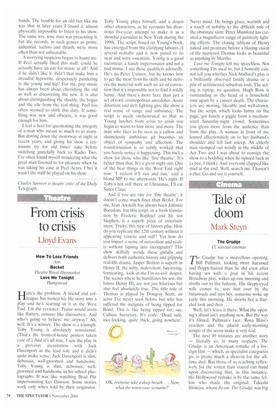Nevertheless, in the week since I first heard the news
of Peel's death, I have found my thoughts repeatedly turning to him. It's no exaggeration to say that for several years in my teens and early twenties, I loved John Peel devotedly, He was the wise, witty and possibly slightly wicked uncle I never had, the man who opened my Cars to more pop music than anyone else and encouraged a lifelong fondness for staying up late.
All the obits referred to Peers gift for making every listener feel he was talking to him or her directly. Certainly. Peel's broadcasts from 1970-72 seemed to be entirely directed at a then skinny kid at Charterhouse who most nights crept back into his study after lights-out to smoke Number Six, drink tepid coffee from a Thermos, listen to the radio and dream.
In those days Peel was a champion of Roxy Music. Rod Stewart and the Faces and folk rock, as well as playing long slabs of prog and Captain Beefheart. I think he even played my beloved Grateful Dead occasionally. The diet didn't seem to change much when I got to Oxford, and in my third year, lodging in a claustrophobic little house off the ring road with a depressive landlady, it was his programme that kept me more or less sane.
In the run-up to finals, listening to Peel with a joint in one hand and a Scotch in the other after a long day spent struggling with Chaucer or Thomas Hardy was a consoling antidote to loneliness and fear.
But after I graduated in 1976, Peel and I grew apart. I still clung to the hippie values and the music that Peel had done much to foster in me. He, however, was going overboard for punk rock, and though I have subsequently come to see that punk was both necessary and often admirable, at the time his enthusiasm for it seemed like a betrayal of everything he once stood for. How could you possibly abandon love, peace and dope for snarls, spit and speed?
What I hadn't realised was that Peel's whole life was dedicated to the shock of the new, the search for the next big thing. And once an artist or a style had become accepted and moved into the mainstream, he often dropped them without mercy or regret. As a general principle, he said, he would always be more interested in a record that he had never heard before than in one he had. Ninety per cent of the records he played had never previously had an airing on the radio.
This was admirable in its way. I suppose, and certainly good news for obscure young
bands. The trouble for an old fart like me was that in later years I found it almost physically impossible to listen to his show. The same wry, wise man was presenting it, but the records, in such genres as grime, industrial, techno and thrash, were more often than not unbearable.
A worrying suspicion began to haunt me. If Peel actually liked this stuff, could he actually have an ear for music at all? And if he didn't like it, didn't that make him a dreadful hypocrite, desperately pandering to the young and hip? For me, pop music has always been about cherishing the old as well as discovering the new. It is also about distinguishing the shoddy, the bogus and the vile from the real thing. Peel too often seemed to shirk this duty. If something was new and obscure, it was good enough for him.
I feel a heel for questioning the integrity of a man who meant so much to so many. But driving down the motorway at night in recent years, and giving his show a tenminute try for old times' sake before switching gratefully back to Radio Two, I've often found myself wondering what the great man listened to for pleasure when he was taking his ease at Peel Acres. I bet it wasn't the stuff he played on his show.
Charles Spencer is theatre critic of the Daily Telegraph.



























































































































 Previous page
Previous page